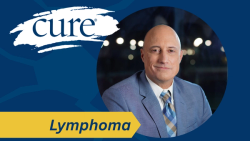Keytruda Side Effects: ‘If Something Doesn’t Feel Right … Call’
Patients with bladder cancer being treated with the immunotherapy agent, Keytruda, should not hesitate to call their oncology team if something does not feel right, an expert said.
Patients with bladder cancer who are being treated with the immunotherapy agent, Keytruda (pembrolizumab) should always reach out to their oncology team if they are experiencing side effects, explained Dr. Andrea Apolo.
In a recent interview at the 2024 Genitourinary Cancers Symposium, Apolo, who is the head of the Bladder Cancer Section of the Genitourinary Malignancies Branch and Director of the Bladder Cancer and Genitourinary Tumors Multidisciplinary Clinic in the Center for Cancer Research of the National Cancer Institute, discussed findings from the phase 3 AMBASSADOR Alliance A031501 trial, which investigated Keytruda in patients with muscle-invasive, locally advanced bladder cancer.
Findings showed that Keytruda outperformed observation when it came to disease-free survival. While the study determined that the immunotherapy agent was safe and tolerable, immunotherapy drugs such as Keytruda can come with side effects that patients should speak up about, according to Apolo.
Keytruda works by inhibiting a certain protein — also called a checkpoint — that helps cancer cells hide from the immune system. Once that checkpoint is blocked, the immune system can better find and destroy tumor cells.
READ MORE: Keytruda Has Received Nearly 40 FDA Approvals. How Does It Work?
In sparking an immune response, the drug can also cause immune-related side effects that can affect any part of the body, and are crucial to bring up to the care team.
Transcript
Anytime something doesn't feel right, patients should call their oncologist just to be evaluated, be seen (and) have labs drawn, because the toxicity of (Keytruda) and other checkpoint inhibitors are very nonspecific. They affect the immune system, and the immune system is all over our body so it can affect any organ in the body.
So if something doesn't feel right, it's time to call the if you're on treatment with (Keytruda) it's time to call the medical oncologist or go in, get a full exam, be assessed and get some labs.
For more news on cancer updates, research and education, don’t forget to subscribe to CURE®’s newsletters here.
Related Content
 What Does Minimal Residual Disease Mean?
What Does Minimal Residual Disease Mean?December 11th 2025
 Expert Shares Advice for Navigating a New Lung Cancer Diagnosis
Expert Shares Advice for Navigating a New Lung Cancer DiagnosisNovember 27th 2025
 Experts Discuss Next Steps in Perioperative Bladder Cancer Treatment
Experts Discuss Next Steps in Perioperative Bladder Cancer TreatmentNovember 11th 2025
 What Is the Difference Between a Clinical Trial and a Real-World Study?
What Is the Difference Between a Clinical Trial and a Real-World Study?September 27th 2025
 Understanding Head and Neck Cancer: A Guide for Newly Diagnosed Patients
Understanding Head and Neck Cancer: A Guide for Newly Diagnosed PatientsSeptember 12th 2025
View additional resources on CureToday.com












